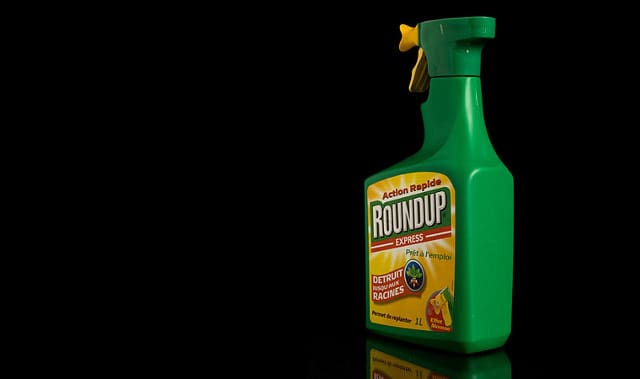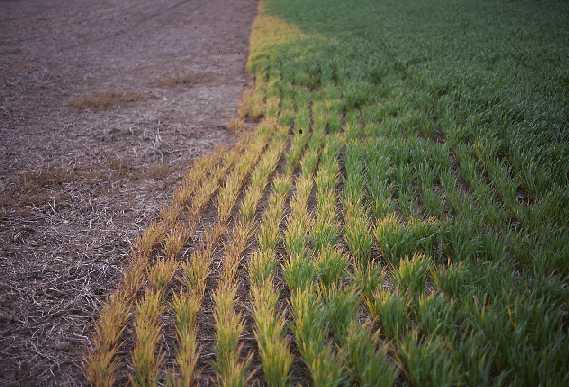Scientists at the International Agency for Research on Cancer have found what many have already suspected: a link between pesticide exposure and a blood cancer called non-Hodgkin’s lymphoma.
The researchers wrote in the International Journal of Environmental Research and Public Health that people exposed to the weed killer glyphosate, marked by Monsanto under the brand name of Roundup, had double the risk of developing non-Hodgkin’s lymphoma. The scientists analyzed over 44 individual research protects published since 1980 to form this conclusion. Those exposed to 2, 4-D, another potent weed killer marketed by Dow Chemical, were 40 percent more likely to develop non-Hodgkin’s lymphoma.

It was theorized by the authors, scientists who work in the IARC Section of Environment and Radiation in Lyon, France, that these pesticides are causing genetic mutations in white blood cells, thereby weakening the body’s immune system and its ability to fight off disease. And previous studies observing farmers’ exposure to 2, 4-D conclude that those in contact with it experience impaired immune systems.
According to research reported by EWG , scientists at the Arctic University of Norway, “extreme levels” of glyphosate have been found on genetically engineered soybeans. Crop scientists genetically alter soy crops so that they can survive blasts of glyphosate and farmers can use the herbicide to get rid of the weeds near crops.
Over time, though, these weeds become resistant to glyphosate and grow hardier. In effect, some farmers have had to resort to spraying more of the pesticide to try and kill the tougher “super weeds.”

Although genetic engineering made an earlier promise to reduce pesticide use, no follow through has yet been reported. According to a recent report by the U.S. Department of Agriculture, the use of glyphosate has doubled – from 62 million pounds in 1996 to 128 million pounds in 2012. Glyphosate now represents more than 83 percent of the chemical pesticides used in the United States annually.
The IARC study was published on April 23 as the U.S. Environmental Protection Agency was considering approving genetically engineered seeds of corn and soybeans to withstand 2,4-D, a suspected carcinogen. If the EPA approves the new GE seeds and if 2, 4-D is used to kill weeds on some of the 170 million acres of corn and soybeans growin the U.S. annually, the USDA estimates that 2,4-D use is likely to triple. This will dramatically increase people’s exposure to the pesticide which has been conclusively linked to cancer and autism.

How should one go about reducing their exposure to glyphosate? By eliminating all genetically-engineered foods from their diet, which removes a large dose of pesticides with them. At present, it is difficult to discern which foods are genetically engineered or not, therefore it’s a guessing game. But by opting for organic food, supporting local farmers, and urging elected representatives to label GMOs, more awareness may be raised and eventual change will be experienced.
Source:


